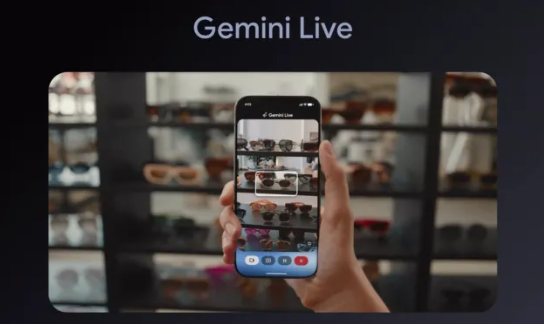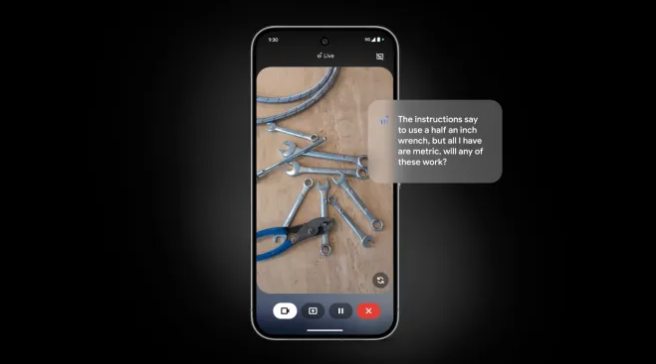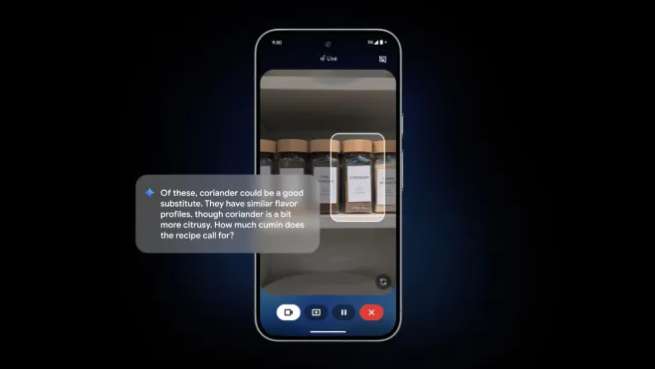The battle between tech giants has once again ignited. On Wednesday, Google officially launched the Pixel 10 series at its Made by Google event, a timing that is nothing short of brilliant, as it drops a major bomb just weeks before Apple is expected to release the iPhone 17. In contrast, the iPhone 17 is expected to follow the same old routine—camera upgrades, thinner body, and new color options—lacking innovation and vitality.
Google, on the other hand, has chosen a completely different path, rapidly integrating its AI platform into its device ecosystem. The era of the smartphone revolution has begun, and Google clearly wants to seize the initiative.
Looking back at last year, the Pixel 9 series already showed remarkable power, featuring Gemini Live voice mode, image generation tools, call recording, searchable screenshots, and other AI features. Data shows that the duration of Gemini Live voice conversations is five times longer than text conversations, indicating a strong demand for AI voice interaction among users.

This year, the tech giant has fully unleashed its firepower, adding more revolutionary AI-driven features to the Pixel 10 series. Visual Overlays camera feature, active Magic Cue, Camera Coach photography assistant, Voice Translate call translation, Take a Message smart message assistant, Pixel Journal, and a series of innovative applications have made their debut, forming an impressive AI ecosystem.
Behind these upgrades lies the powerful new Tensor G5 processor. This self-developed chip, specifically designed for AI experiences, not only delivers superior performance but is also the first to run the latest Gemini Nano model, providing a solid hardware foundation for the entire AI feature system.
At the same time, Google announced that Gemini Live will receive a new audio model, which is a breakthrough. This new model can accurately identify changes in the user's tone, adjusting the response accordingly whether the user is excited or concerned, achieving truly emotional interaction.

The addition of the Visual Overlays feature has taken the capabilities of the AI assistant to a new level. Now, Gemini Live can see what the user sees through the camera and highlight relevant information on the screen to provide guidance. For example, while traveling abroad, simply pointing the phone at a street sign allows the AI to identify and inform about parking information on the side of the road, creating an experience similar to having a personal intelligent guide.
The launch of the Magic Cue feature demonstrates Google's forward-thinking approach. This proactive AI assistant provides contextual suggestions in real-time in apps like Gmail, calendar, messages, and screenshots, truly realizing proactive AI service.
This concept is not a new idea. In the early 2010s, Google had previously launched Google Now, which provided real-time information related to daily schedules via pop-up cards. The current Magic Cue can be seen as a rebirth of this concept in the AI era, but with stronger functionality that deeply integrates into the user's daily applications and interactions.
Google demonstrated a practical application scenario of Magic Cue on stage: when a user plans to meet a friend for dinner, the AI will actively recommend a restaurant and offer a quick dial booking function, even suggesting reply content to share the booking details with friends or reminding them to check the calendar for the schedule. This seamless smart experience is impressive.

The suggestions from Magic Cue appear within the currently used application, marked with a rainbow-colored outline, and are also displayed in the personalized daily summary Discover feed. Users can directly click on the suggestion to perform the corresponding action, offering an extremely smooth interaction experience.
Like Google Now, Magic Cue also has a reminder function, but with greater intelligence. It can pop up reminders and notifications more intuitively, such as reminding users to handle returns, suggesting research on specific topics, or recommending new playlists. This proactive service makes AI a true smart assistant in the user's life.
Initially, the suggestion function of Magic Cue will focus on selected activities, including paying bills, adding calendar events, displaying weather forecasts for upcoming trips, etc. Over time, Google will continue to expand the range of functions and allow users to customize access to data sources.
Notably, Apple is also trying similar functions, allowing users to interact with apps through Siri and perform actions, but unfortunately, this AI-powered Siri feature has been postponed until 2026. This time gap undoubtedly gives Google a valuable market advantage.
Another notable innovation in the Pixel 10 series is Camera Coach, an AI assistant designed to improve users' photography skills. This feature will be released as a preview version along with the new device, using the Gemini model to provide users with composition and framing suggestions. Users can even choose the "inspiration" option, allowing the AI to recommend shooting scenes they had not considered before, opening up infinite possibilities for photographic creation.
Intelligent upgrades in camera features are also evident in group photo recognition. The Auto Best Take feature can automatically activate, analyzing up to 150 images in seconds to find the best one. Whether it's a photo taken by the user themselves or a result of AI mixing other photos, this feature can accurately identify and present the perfect outcome.
Combined with the AI-driven Ask Photos tool, users can also edit photos in post-production, including adjusting lighting, changing composition, or removing unwanted objects, all through voice or text interaction with the Photos AI assistant. This natural language interaction makes professional-level editing easily accessible.
In Pro devices, the Pro Res Zoom feature also uses AI technology, allowing users to zoom in up to 30 to 60 times on buildings and landscapes, and achieve the same zoom effect on animals and wildlife. This groundbreaking feature offers unprecedented creative space for photography enthusiasts.
As a counterpart to the AI-powered photography features, the Pixel 10 phones will also implement the C2PA standard first. This standard is used to establish the source and editing history of digital content, helping to identify whether a photo has been modified by AI. In an era where AI-generated content is rampant, this feature is particularly important and timely.
Voice Translate is another game changer. This newly added AI feature can use device-side AI technology to translate calls in real-time, and more astonishingly, the translated speech sounds like the original voice of each speaker. For business professionals and world travelers, if this feature is as described, it would completely change the cross-language communication experience.
This feature supports bidirectional translation between English and Spanish, German, Japanese, French, Hindi, Italian, Portuguese, Swedish, Russian, and Indonesian, covering a wide range of languages.
In the Pixel phone app, the Take a Message feature provides real-time transcription for missed and rejected calls, then uses AI to identify the necessary follow-up actions based on the caller's voice message. This update will also apply to the Call Notes feature, further improving call management efficiency.
Pixel Journal is Google's response to Apple's Journal app, but with more powerful features. It uses AI technology to prompt users to share ideas, track goal progress, and provide deep insights over time. This intelligent diary experience makes personal growth tracking more vivid and meaningful.
Other AI upgrades in the Pixel 10 series include writing tools integrated into the Gboard keyboard, updated Pixel screenshots in Pixel Studio, and the integration of Notebook LM with recording and screenshot features, among others. Although these may be considered minor upgrades, they collectively form a complete and powerful AI ecosystem.
This event not only showcases Google's technical strength in the field of AI smartphones but also signals an impending profound transformation in the industry. Faced with Google's comprehensive AI strategy, will Apple's traditional upgrade path still meet consumers' growing demands for smart technology? The answer to this question may soon become clear.










